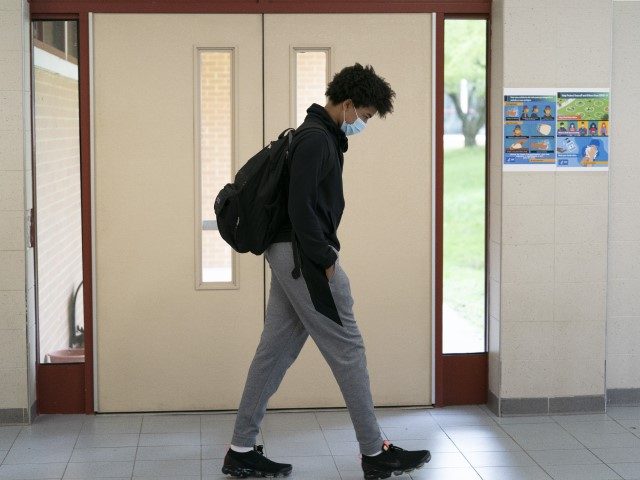A high school in Chicago is assessing its grading system using “evidence-backed research“ and a “racial equity analysis tool.”
Editor’s Note: The original version of this article, based on a report by West Cook News, characterized the Oak Park and River Forest High School’s (OPRFHS) new grading system as “race-based.” The school responded to that characterization with the following statement:
“As part of the Board of Education’s strategic plan, the OPRFHS Grading and Assessment Committee was formed to examine national research on objective, unbiased practices for determining whether students have mastered academic content. At the Board of Education’s May 26 meeting, the administration’s representative to the OPRFHS Grading and Assessment Committee provided an initial report that included a progress update on the committee’s examination of grading practices.
At no time were any statements made recommending that OPRF implement a race-based grading approach.
Prior to implementing grading changes, if any, recommendations will be made to the Board at a public meeting. Again, contrary to the title of the article, the district has not implemented, and has no intention of implementing, any grading and assessment policy based on race.”
Our headline and some paragraphs have been revised accordingly. The story continues below:
The move is necessary, advocates say, because “traditional grading practices perpetuate inequities,” a slide used in a presentation said.
Students will not be held accountable for missing class, misbehaving in school, or for failing to turn in assignments.
Deleted our initial tweet when we saw the article was a bit loopy, but that doesn't mean the new non-grading policy is not, in fact, quite noxious.
Best described by @mattyglesias:
"It’s a broad attack on measuring learning." https://t.co/OcZjiwaYwq
— Free Black Thought (@FreeBlckThought) June 1, 2022
The West Cook News reported on the development:
School board members discussed the plan called “Transformative Education Professional Development & Grading” at a meeting on May 26, presented by Assistant Superintendent for Student Learning Laurie Fiorenza.
[The plan] calls for what OPRF leaders describe as “competency-based grading, eliminating zeros from the grade book…encouraging and rewarding growth over time.” Teachers are being instructed how to measure student “growth” while keeping the school leaders’ political ideology in mind.
“Teachers and administrators at OPRFHS will continue the process necessary to make grading improvements that reflect our core beliefs,” the plan, set to begin in the fall of 2023, says.
The article notes that according to the Illinois State Board of Education, 38 percent of sophomores fail the Scholastic Aptitude Test (SAT).
The failure rate was 77 percent for black students, 49 percent for Hispanic students, 27 percent for Asian students, and 25 percent for white students.
Margaret Sullivan, associate director at the Education Advisory Board, which consults colleges and universities, said teachers have to recognize when “personal biases manifest.”
“Teachers may unintentionally let non-academic factors—like student behavior or whether a student showed up to virtual class—interfere with their final evaluation of students,” Sullivan said.
Fiorenza called for the change after releasing a report that showed a spike in “F” grades in the 2020-21 school year.
“OPRF’s administration will adopt language that makes and keeps the system visible and continues to name racism as a complex interconnected structure,” the report said. “We must recognize the unique challenges faced during the pandemic intensify the need for a systemic approach to confronting the racial and socioeconomic discrepancies often experienced by our underrepresented student population.”
Follow Penny Starr on Twitter

COMMENTS
Please let us know if you're having issues with commenting.